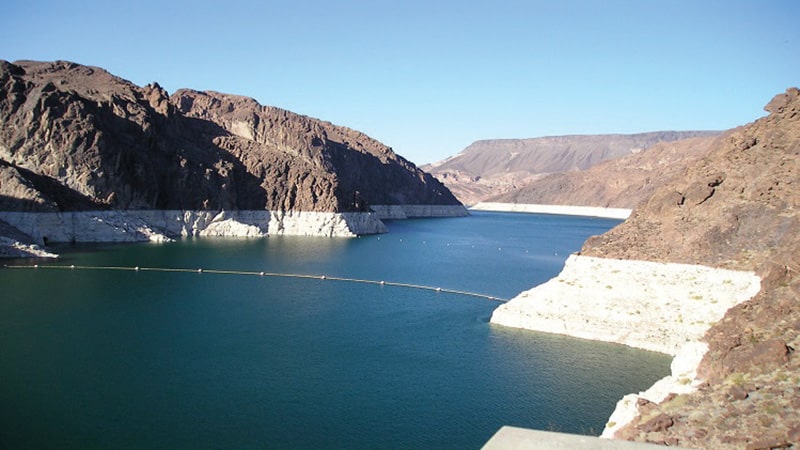Information and Photo Courtesy of Phoenix Water Services
At a recent briefing, officials with the U.S. Department of the Interior, Arizona Department of Water Resources, and Central Arizona Project delivered a stark assessment of the Colorado River.
As impacts of climate change persist, more significant Colorado River cuts are likely to occur. Those reductions will impact the amount of Colorado River water available to Phoenix and other central Arizona municipalities, farmers, and tribes. Central Arizona is currently experiencing the first-ever declared shortage on the Colorado River.
“Three things are true about this situation: first, it is serious. Second, it will require the city to think differently, and plan differently, for how we use water. Third, we need to enlist the people of Phoenix as our partners in the hard work ahead,” says Phoenix Mayor Kate Gallego. “Researchers are serious when they tell us this megadrought is the worst in at least 1,200 years. The more we can encourage people and businesses to think creatively about how to reduce water consumption now, the better off we will be.”
Over the course of decades, Phoenix developed a robust and diverse water resource portfolio with multiple sources and contingency supplies to provide safe, clean, and reliable water to its customers. The Colorado River currently supplies 40% of the water Phoenix uses.
“The Colorado River shortage is coming sooner than anticipated,” says Phoenix Water Services Director Troy Hayes. “But all the planning and investment in infrastructure that we have done has put the city in a good place to manage the challenging conditions.”
The city has invested in infrastructure and underground water storage, and has been a strong pioneer in water conservation in anticipation of a Colorado River shortage. Yet, as the drought intensifies, the city must continue to innovate new, proactive actions to prepare for even deeper shortages on the Colorado River, which is over-allocated and in decline due to climate change. The city is prepared to implement additional actions, including those described in its Drought Management Plan.
“Our customers have always been our partners in conservation, and we need that more than ever now,” says City of Phoenix Water Resources Management Advisor Cynthia Campbell. “It is imperative that everyone understands that as we adapt to a hotter, drier future, efficient water use will be essential for maintaining the quality of life we have become accustomed to in the desert.”
Residential consumption makes up approximately 70% of water use in Phoenix. With just a little effort, every Phoenix Water customer can easily reduce their water use by 1% to 5%, saving millions of gallons of water every year.
Here are some ways to conserve water at homes and businesses:
• Do not overwater landscaping and use a smart irrigation controller to reduce outdoor water use. Text WHENTOWATER to 33222 for simple monthly reminders to keep your watering on track.
• Find and fix leaks inside and outside.
• Know the optimal amount of water to use in your home with the Water Usage Calculator.
• Choose xeriscape by removing or reducing grass lawns and planting native or desert adapted trees, shrubs, and groundcover that require little water once established.
• Upgrade to water-saving toilets and a low water use dishwasher and washing machine.
• Cover swimming pools to reduce evaporation.
While asking residents and businesses to do their part, the city is increasing its conservation outreach effort. For example, the Phoenix Water Conservation team expanded its homeowner’s associations outdoor water efficiency program to reach more neighborhoods. After meeting with just six associations, the Water Conservation team identified a potential for more than 20 million gallons per year of savings – enough water to supply 184 families for a year. As more HOAs participate, Phoenix expects even more water savings.
The city has worked hard to develop a sustainable water supply and has been designated by the state as having a 100-year assured water supply. In addition, Phoenix recycles nearly all its wastewater, delivering it for use in agriculture, energy production, urban irrigation, aquifer recharge, and riparian wetland maintenance.
Phoenix will continue to plan, invest and conserve to ensure a sustainable future while providing safe, clean, and reliable water to its customers without interruption. Additionally, the city will continue to take proactive actions to prepare for even deeper shortages on the Colorado River as we strive to become the most sustainable desert city in the world.
To learn more, visit phoenix.gov/waterservices.





